DISC Basic Profiles FAQ
Frequently asked questions
In general, a person’s profile tends to stay fairly consistent over time. While you may find small differences in your results from one time taking the assessment to the next, you’re unlikely to experience major shifts in style.
If it has been two years or more since you last took the profile, we recommend taking it again to ensure the most accurate and up-to-date information.
The DISC model was originally based on the 1928 work of Dr. William Moulton Marston at Columbia University.
The four-quadrant behavioral model was developed to examine the behavior of individuals within their environmentally specific situations. DISC looks at behavioral styles and behavioral preferences. It was Marston’s 1928 book, “The Emotions of Normal People,” which introduced the DISC model to the public. Marston, a contemporary of Carl Jung, defined four categories of human behavior style, type, or temperament which are Dominance, Influence (Inducement), Stability (Submission), and Compliant, Conscientious or Caution. Marston used compliance.
Even though Marston developed the theory that we know today as D. I. S. C., it wouldn’t be until the 1970s that a psychologist named Dr. John Geier at the University of Minnesota would create an assessment that used D. I. S. C. as the foundation of his behavioral profiling tool. Geier would use other typography theories to influence his tool, but the language of D. I. S. C. was used from Marston’s book.
Later, the work of Marston was researched and updated by Dr. John Geier and Inscape Publishing at the University of Minnesota. The DISC model and its complementary assessment tools have helped over 50 million people in 20+ languages over the last 40 years.
As an added bit of trivia, Marston is known in many circles for his work in developing the lie detector test. He was also the creator, writer, and producer of “Wonder Woman” which was introduced into comic strips, the role model of a strong female.
DISC theory isn’t owned by any one company or person. DISC theory was created by William Moulton Marston. However, Marston never created a DISC assessment.
No!
Unlike MBTI, you do not need to be certified to conduct a DISC Workshop. DISC is designed to be simple and easy to understand.
For anyone that is committed to using DISC as a trainer, certification is recommended as it will help anyone develop a deep knowledge of the theory and tool.
We offer an online, self-paced certification course that requires a person to demonstrate what they learned with the publisher of this tool.
For more information, check out our DISC Certification registration page ->
Yes!
You can open a DISC Administration account for $95, which includes access to EIQ-2, Motivators, and Learning Style assessments.
Have other Questions? Let us know!
Contact Form
"*" indicates required fields
